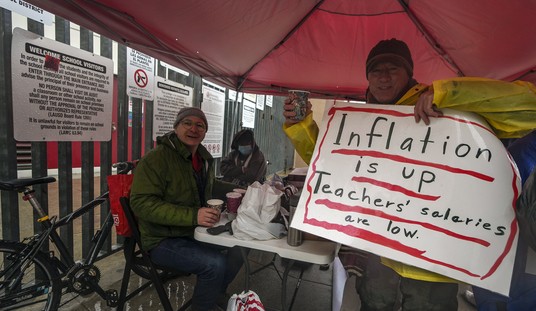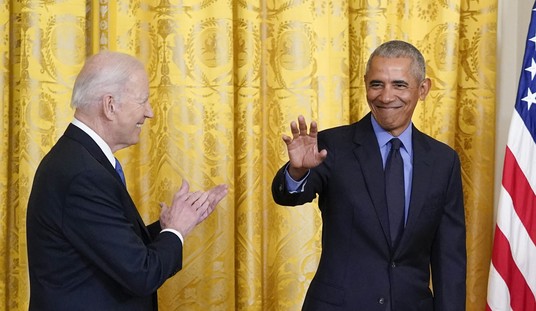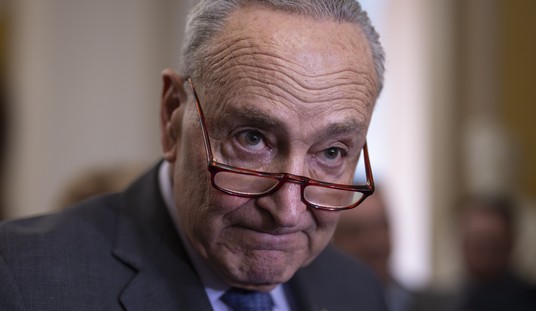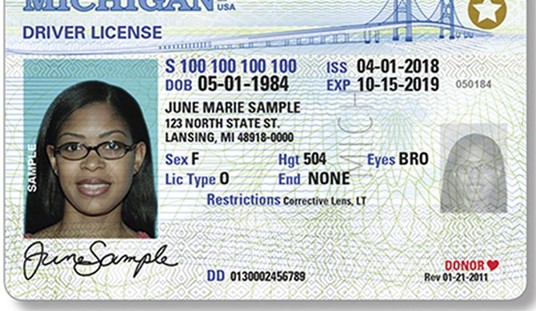Few industry analysts seemed surprised when Sprint’s new CEO announced “after thorough analysis” that the company won’t participate in next year’s auction of TV broadcast spectrum (known as the “incentive auction”). Analysts already knew that Sprint “has the spectrum it needs to deploy its network architecture of the future.” As a senior telecommunications analyst for Bloomberg Intelligence said in response to the news, “Sprint really has a lot more spectrum than its rivals, so they don’t have that pressing need to get more.”
The announcement is an embarrassment to the Department of Justice (DOJ), which apparently didn’t know (or didn’t care) that Sprint was flush with spectrum for the foreseeable future. When the Federal Communications Commission (FCC) was developing its auction rules, the DOJ urged it to “ensure” that both Sprint and T-Mobile would “win” spectrum in the auction. The DOJ believed Sprint and T-Mobile had to win “low-frequency” spectrum in the auction in order to compete against Verizon and AT&T in the mobile marketplace. The FCC agreed with the DOJ’s expert opinion and decided to “reserve” the auction’s best spectrum for bidders other than AT&T and Verizon.
Though it’s no surprise, it’s now obvious the country’s federal experts on competition and antitrust matters were wrong in their analysis of Sprint’s alleged need for low-frequency spectrum in order to compete. The agencies were blind to Sprint’s effort to leverage Washington to its business advantage even though Sprint used the same tactics just a few years ago in the last major spectrum auction. As FCC Commissioner Ajit Pai recently noted, “Sprint’s decision not to participate in the incentive auction highlights the folly of the FCC’s attempt to pick winners and losers before the auction begins.” It’s been less than a year since Sprint told the FCC that it would be “unable to make up much, if any, ground” competing against Verizon and AT&T if the FCC didn’t expand its existing spectrum reserve so that Sprint could acquire additional spectrum. It was only after the FCC completed its spectrum reserve proceeding that Sprint announced it doesn’t need the spectrum after all.
This revelation is just another exhibit in a long line of evidence confirming the problem with the FCC’s proclivity to fall prey to its own hubris and make important policy decisions based on inappropriate bias rather than data. The repeated failure of FCC attempts to assign spectrum licenses efficiently through bureaucratic proceedings prompted economist Ronald Coase to develop his eponymous theorem that earned him a Nobel prize. The Coase theorem indicates the public interest is best served when the FCC relies primarily on market forces to assign spectrum licenses. Yet the FCC initially responded to Coase’s critique by assigning licenses by lottery, an experiment that ended in scandal when the public discovered that giving away valuable spectrum licenses at random had made multimillionaires of lucky speculators who resold their licenses for astronomical sums at the taxpayer’s expense.
Congress authorized the FCC to auction spectrum licenses precisely because agency bureaucrats had proven incapable of accurately and efficiently assessing the value of spectrum to particular firms with differing business plans. Though spectrum auctions were initially considered controversial, there is now widespread agreement that market based auctions license spectrum to the firms who are mostly likely to use it for the benefit of the public.
There was also widespread agreement that non-market based auctions — i.e., auctions with a “reserve” — only harm the public. An exhaustive analysis of empirical data demonstrated that restrictions on the participation of large firms in previous auctions delayed the provision of new wireless services to 68% of the public by a weighted average of nearly 7 years, reduced auction revenue by 31% to 61%, and failed to substantially benefit wireless competition. Rather than offer competitive wireless services to the public, most small firms who won restricted spectrum licenses “flipped” them to larger wireless firms at a substantial profit.
The incentives created by the spectrum “reserve” in the incentive auction are different, but still harmful to the public. Sprint never needed to win any spectrum in the incentive auction in order to benefit from the FCC’s spectrum “reserve.” As I noted two years ago, Sprint (and T-Mobile) had strong incentives to exclude its two largest rivals (Verizon and AT&T) from bidding on additional spectrum even if Sprint never intended to participate in the auction. Convincing the FCC to adopt a rule constraining the ability of Verizon and AT&T to expand their network capacity to meet customer demand is a win for Sprint in and of itself — especially when Sprint already has more spectrum than its rivals. It’s a lot cheaper to beat your competitors by filing unsubstantiated pleadings at the FCC than to spend serious money competing in an even-handed spectrum auction or offering a superior product in the free market.
The fact that Sprint successfully duped the FCC and DOJ might be understandable if this were their first ride in a spectrum rodeo. But this isn’t the first time Sprint has tricked the FCC into adopting rules for a spectrum auction that would adversely affect its competitors only to back out of the bidding at the last minute. Sprint convinced the FCC to auction the “H block” spectrum in a way that was likely to draw only one or two bidders just before Sprint “opted not to participate.” And it’s not just Sprint. Other companies have used the same strategem and left the FCC holding spectrum that would otherwise have been used to serve the public.
It’s especially ironic that the biggest winner here is likely to be T-Mobile, a subsidiary of an international wireless conglomerate that has more than 154 million wireless subscribers as of June 30, 2015, far more than Verizon or AT&T. In response to Sprint’s announcement, analysts at Wells Fargo said T-Mobile “should face a lot less competition in the fight for the” 30 MHz of “reserve” spectrum, and Evercore ISI analysts said T-Mobile “could benefit from having fewer large competitors.” It’s hard to see how giving a government windfall to an international conglomerate serves the public interest any better than the scandal of giving spectrum licenses to ordinary Americans by lottery.
There is a simple lesson in all this: The FCC shouldn’t tailor its spectrum policies to any particular company’s claimed business plans. “It is impossible for the FCC to predict accurately the ultimate business decisions of multiple independent companies whose particular business plans and the circumstances determining them are unknown to the FCC or anybody else.” When federal bureaucrats try to second-guess the operation of the market like armchair CEOs, the public interest loses.













Join the conversation as a VIP Member